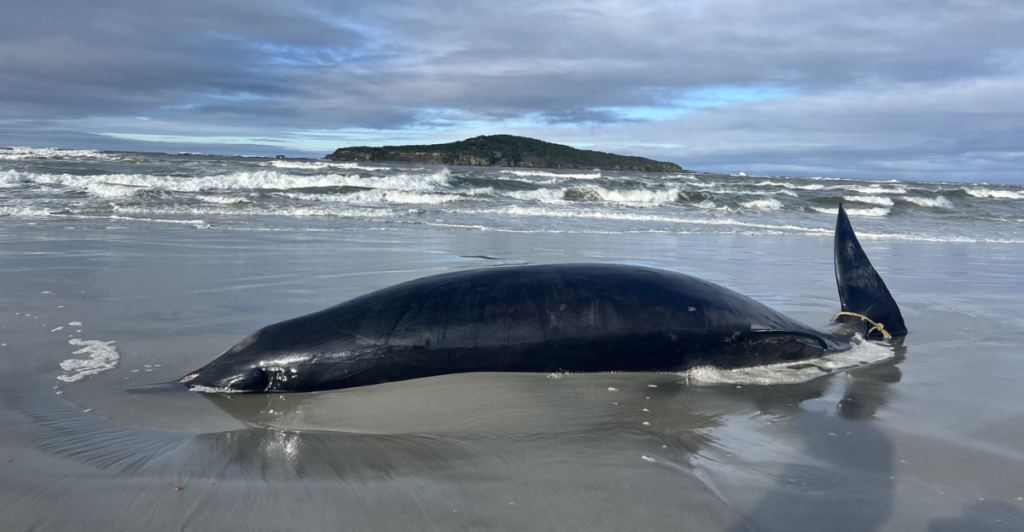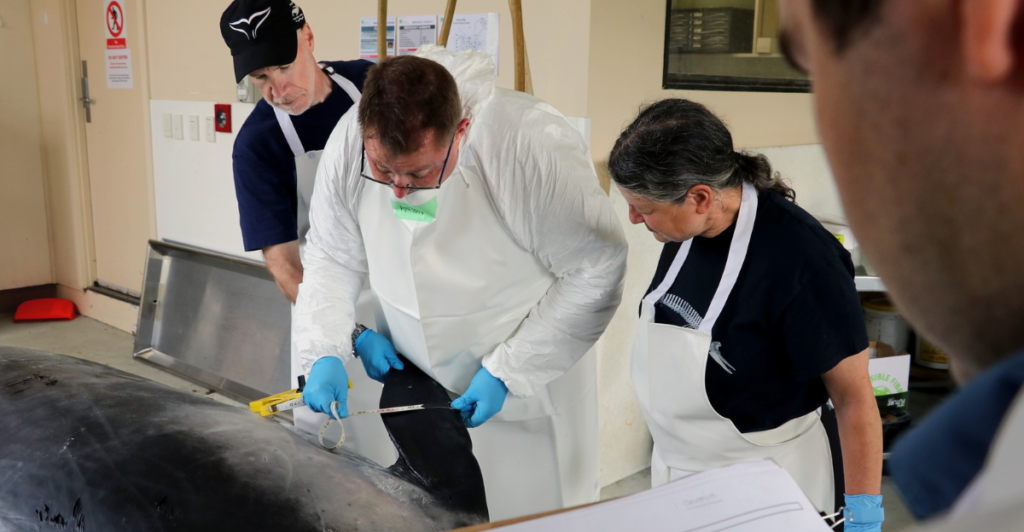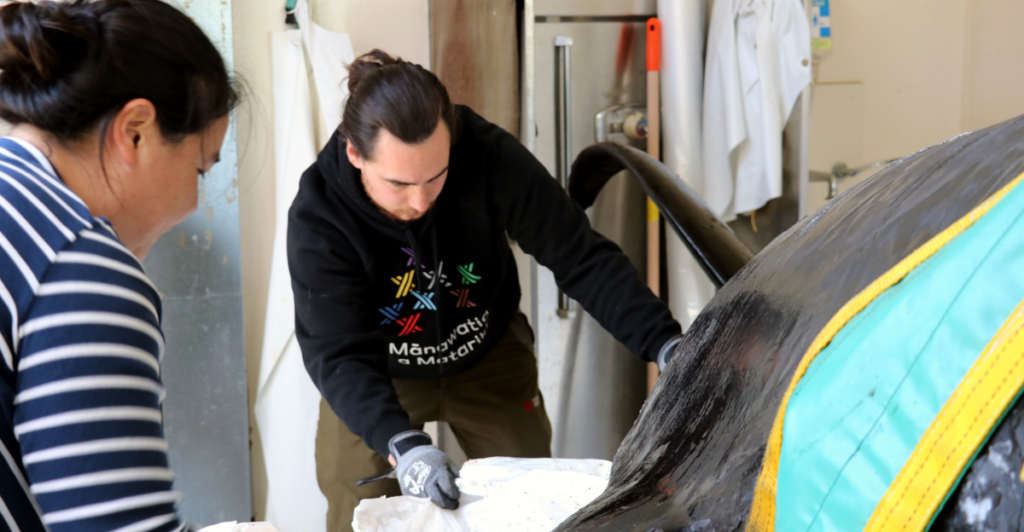
The spade-toothed whale, the rarest whale on Earth, has captured the attention of scientists after a near-perfect specimen was found in New Zealand. With only seven ever recorded, this elusive species remains largely a mystery. On a New Zealand beach in July, a male whale washed ashore, sparking the first-ever dissection of this enigmatic creature. Researchers hope this event will illuminate this fascinating species’ habits, biology, and ecology.
Decoding a Mystery

A senior marine scientist, Anton van Helden, has studied beaked whales for 35 years. For him, dissecting the spade-toothed whale is an extraordinary milestone. This species has never been seen alive in its natural habitat, making every piece of evidence crucial. Scientists are eager to uncover answers about the whale’s habitat, feeding habits, and physiology, which could help solve decades-long mysteries about this elusive ocean dweller.
A Species in the Shadows

Little is known about spade-toothed whales. Scientists don’t know where they live, why they’ve never been spotted alive, or how their bodies function. Even the cause of death for this particular whale is unknown. Researchers aim to unravel these mysteries by studying the whale’s anatomy, including its brain, stomach, and other features. These may hold clues about its unique adaptations to life in the ocean’s depths.
Rare Sightings

Since the species was first identified, only seven spade-toothed whales have been discovered. Earlier findings, primarily bones, were collected in New Zealand and Chile. It wasn’t until 2002 that DNA sequencing confirmed these specimens belonged to a distinct species. In 2010, two intact spade-toothed whales washed ashore, but this recent find marks the first time scientists have had the chance to examine one closely.
A New Zealand Phenomenon

New Zealand is a hotspot for whale strandings, with over 5,000 recorded since 1840. The first spade-toothed whale bones were uncovered 1872 on Pitt Island, followed by discoveries in the 1950s and 1986. This latest specimen, found intact and well-preserved, offers a rare opportunity for scientists to deepen their understanding of the species and its connection to New Zealand’s unique marine environment.
Uncovering Secrets

This whale’s dissection might reveal groundbreaking discoveries. Scientists are particularly interested in potential parasites unique to the species, their diet, and how they communicate through sound. By analyzing the creature’s body, researchers hope to gain insights into its elusive lifestyle and the broader environmental factors that have kept it hidden from human view for so long.
Indigenous Connection

To Māori, whales are a sacred treasure or taonga. The dissection of this spade-toothed whale is being conducted in partnership with the local iwi (tribe), Te Rūnanga Ōtākou. Traditional prayers, or karakia, are offered, and the whale is treated with the utmost respect. Māori leaders view the whale as a gift from Tangaroa, the ocean deity, emphasizing this rare discovery’s cultural and spiritual importance.
Blending Science and Tradition

The collaboration between scientists and the Māori ensures that modern research and cultural traditions are honored. The iwi will keep the whale’s jawbone and teeth, which hold spiritual significance, while its skeleton will be displayed in a museum. Advanced technologies, like CT scans and 3D printing, will preserve and replicate the whale’s features for scientific and educational purposes.
A Life in the Depths

Spade-toothed whales are believed to inhabit the vast Southern Pacific Ocean, home to some of the deepest underwater trenches. As the deepest-diving whales, beaked species like this one may rarely surface, explaining their elusiveness. By studying this specimen, scientists hope to understand better the species’ adaptation to deep-sea living and how it interacts with the broader ocean ecosystem.
International Interest

This discovery has drawn experts from around the globe, eager to learn from the spade-toothed whale. The specimen was refrigerated until the dissection began, preserving its pristine state. Scientists like Joy Reidenberg, a comparative anatomist from the U.S., are using this opportunity to explore how the whale’s anatomy might contribute to understanding marine life and human biology.
A Unique Anatomy

One of the study’s main goals is to examine the whale’s internal systems. Beaked whales, including the spade-toothed variety, have unique stomach structures and sound-production mechanisms. By analyzing this specimen, researchers hope to unlock secrets about its diet, communication, and navigation of the ocean’s extreme depths. Each discovery could expand our understanding of marine biodiversity.
Conservation Lessons

This rare find underscores the importance of marine conservation. The spade-toothed whale’s scarcity reflects broader challenges deep-sea species face, including habitat loss and climate change. By studying this whale, scientists aim to gather data that could inform efforts to protect marine ecosystems and preserve biodiversity for future generations.
Honoring the Whale

The dissection of this spade-toothed whale is not just a scientific milestone but also a moment of cultural significance. Combining science with tradition, this event offers a unique opportunity to learn about a mysterious species while respecting its role in Māori heritage. As research continues, the whale’s legacy will contribute to a deeper understanding of our oceans and the life they sustain.
Stay connected with us for more stories like this! Follow us to get the latest updates or hit the Follow button at the top of this article, and let us know what you think by leaving your feedback below. We’d love to hear from you!







